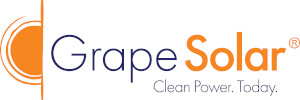 Energy Materials Corp. (EMC) is focused on the development of high-speed, roll-to-roll printing of purebred perovskite solar panels.
Energy Materials Corp. (EMC) is focused on the development of high-speed, roll-to-roll printing of purebred perovskite solar panels.
EMC's manufacturer business model is based on leveraging joint development partners: Kodak's manufacturing facilities, and Corning's materials innovation, and combining them into a unique manufacturing model. This model inverts the restrictive, go slow paradigm with a pursuit of speed: in manufacturing scale-up, production throughput, capacity expansion and early revenue.
With over 100 years of Kodak printing experience and data informing development, EMC's model is mapped for rapid, broad market segment participation, market disrupting product pricing, and gross margins that are more than twice that of current module manufacturers.
 Energy America, a U.S-based solar module manufacturer, has a comprehensive range of PV products and solutions for residential, commercial, and utility needs.
Energy America, a U.S-based solar module manufacturer, has a comprehensive range of PV products and solutions for residential, commercial, and utility needs. 



 Founded in 1999, First Solar is an American solar technology company and global provider of responsibly produced, eco-efficient solar modules advancing the fight against climate change.
Founded in 1999, First Solar is an American solar technology company and global provider of responsibly produced, eco-efficient solar modules advancing the fight against climate change. Golden Solar New Energy Technology Holdings Limited (Originally Baofeng Modern International Holdings Company Limited) is an investment holdings company listed on the Main Board of the Stock Exchange of Hong Kong Limited (Stock Code: 1121).
Golden Solar New Energy Technology Holdings Limited (Originally Baofeng Modern International Holdings Company Limited) is an investment holdings company listed on the Main Board of the Stock Exchange of Hong Kong Limited (Stock Code: 1121).  Founded in Eugene, Oregon and established in 2009, Grape Solar is a retail solar brand with over a decade of experience providing grid-tied, grid-interactive and off-grid solar systems to businesses and individuals.
Founded in Eugene, Oregon and established in 2009, Grape Solar is a retail solar brand with over a decade of experience providing grid-tied, grid-interactive and off-grid solar systems to businesses and individuals. 

